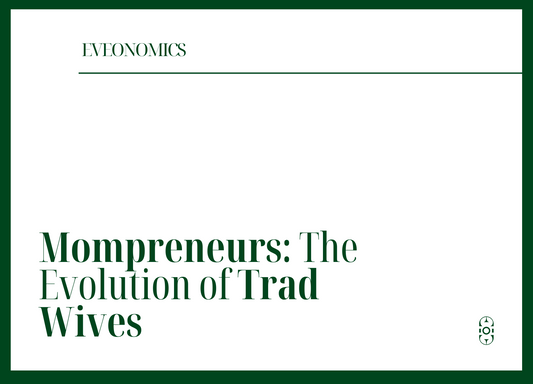For centuries, women have faced significant challenges in gaining the right to control and manage wealth. Historically, the concept of women owning property or holding financial power was not just dismissed but outright forbidden. Today, the foundation of women’s economic empowerment can be traced back to the hard-fought victories for property rights, battles that continue to shape the financial landscape.
The Legal Cage of Coverture
Long before women could vote or seek financial independence, they were bound by the archaic legal doctrine of coverture. Under this law, women—upon marriage—were essentially rendered legally invisible. A woman’s assets became her husband's. She had no right to own property, manage money, or engage in financial transactions in her own name. This reality not only denied women personal autonomy but further perpetuated their economic dependence on men.
Coverture wasn't just a legal technicality; it was a cultural construct that reinforced gender inequality. It wasn’t until women began pushing for change that the system started to unravel.
Pioneering Change: The Married Women’s Property Acts
The road to economic empowerment began with legislative change, and the Married Women’s Property Acts played a critical role in this transformation. In Britain, the first significant victory came with the 1870 Act, allowing married women to retain earnings and property acquired after marriage. It was revolutionary, but just the beginning.
The more significant 1882 Act expanded those rights to include ownership and control of property, both before and after marriage, allowing women to enter contracts and participate in legal transactions. This legislation gave women the first real glimpse of financial autonomy.
In the United States, this progress came in waves, starting with Mississippi’s 1839 act and spreading state-by-state, culminating in New York’s 1848 law, which granted married women ownership of their property. These acts weren’t just legal shifts; they marked a social revolution in how women were perceived—not just as wives and mothers, but as individuals with their own financial agency.
Property Rights: The Cornerstone of Economic Independence
Gaining the legal right to own and manage property was transformative. For many women, this change meant security. Property ownership allowed them to invest, save, and build wealth, fundamentally altering the power dynamics within families and society. No longer entirely dependent on husbands or fathers, women could begin to carve out a measure of independence.
This shift didn’t just affect wealthy women. It provided a new layer of protection and opportunity for women of all classes, giving them the tools to escape bad marriages, start businesses, or manage their estates effectively.
Women as Economic Agents
The right to own property also meant that women could take their first steps toward becoming players in the broader economy. Wealthier women were able to manage family estates or invest in real estate and business ventures. This newfound authority wasn’t about lavish living—it was about stewardship, leadership, and responsibility. Women began to contribute in ways that reshaped the economy and society.
Feminism and Property Rights: A Parallel Fight
As women fought for property rights, they found themselves also advocating for broader social and political rights. The push for financial autonomy dovetailed with movements for suffrage and labour rights, spearheaded by influential figures like Susan B. Anthony and Elizabeth Cady Stanton. For these leaders, the right to own and control property was intertwined with the right to vote. These rights were two sides of the same coin—both essential for true equality.
The Global Struggle for Economic Equality
While Western societies were grappling with property rights, women in other parts of the world faced their own battles. Even today, many women in developing countries struggle with limited rights to own land or inherit property. In some cultures, traditional laws supersede national reforms, making it difficult for women to gain equal footing in the global economy.
This global struggle continues, with movements advocating for women's financial independence by challenging longstanding cultural norms and legal barriers. The progress that women in developed nations have seen serves as a beacon of hope for those still fighting for the basic right to own and control their wealth.
Closing the Gender Wealth Gap: The Work Continues
Today, the fight for gender equality in wealth continues. Women have made significant strides in closing the wealth gap, but challenges remain. The ability to own property and manage assets is one critical step. Still, women face systemic barriers, including wage inequality, lower access to credit, and underrepresentation in leadership roles.
Financial literacy and education are more important than ever. Women must be equipped with the tools to navigate financial systems, invest in their futures, and pass on their wealth to future generations. The legacy of those who fought for property rights is alive in the continued push for equality in all areas of economic life.
Conclusion: The Power of Ownership
Women’s property rights laid the foundation for financial independence and economic empowerment. The Married Women’s Property Acts were monumental not just for their legal implications, but for their broader social impact, enabling women to take charge of their financial destinies.
Today, as we reflect on these historical struggles, we must recognise that the fight for women’s economic equality is far from over. Property ownership was, and still is, a symbol of autonomy—a vital step toward a future where women control their wealth and, ultimately, their futures.
*This article is for general information purposes only and is not financial advice. We are not licensed financial advisors. Please consult a qualified professional before making any investment decisions to ensure they fit your specific financial situation.





